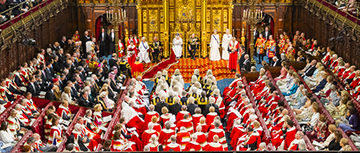(Question asked by the Marshall Society)
Runner-up: Peter McLaughlin
In Ireland, in 1845, the potato crop failed. The disease that caused the failure was not unique to this island, but the legacy of centuries of British colonialism—prominently, protectionist trade policies and extractive systems of land ownership—meant that the Irish depended on the potato, and could not survive without it. Political dynamics meant relief was too little, too late, and offered up with condescension and scorn. While politicians in London endlessly dithered, a million people were killed.
This sequence of events is not unique in British history. The politics of British colonialism caused famines throughout the world, killing untold millions. But what was (relatively) unique about an Gorta Mór was that historical circumstances gave many young Irish people an alternative to famine: flight. One in eight Irish escaped the nightmare of those years by emigrating, typically to Britain, North America, or Australia. We often talk about migration as a chance to ‘make a new life’; but for those who left during an Gorta Mór, the ability to migrate was their only chance at any life. They may have faced discrimination, exploitation, and oppression abroad, but at home they faced death. The freedom to migrate saved an untold number of Irish lives during the darkest years of the country’s history.
The colonialism that caused an Gorta Mór was not limited to Ireland: it extended across the globe, taking on even more brutal, extractive, and oppressive forms. And its results linger to this day. Famine is not a thing of the past: neither are war, disease, torture, or any of humanity’s nightmares. And neither is the, perhaps more mundane, but no less crushing reality of poverty: the grinding horror of living on less than US$1.90/day shapes nearly a billion people’s lives. The victims of these horrors are often ultimately the victims of the same colonialism that forced the Irish to flee. For so many of the world’s poorest, the ability to migrate to somewhere like the UK could change their lives, perhaps even make the difference between life and death.
Coming to terms with the legacy of colonialism is perhaps the single greatest challenge facing the UK; and no one policy could possibly atone for all the crimes this country is guilty of. But opening the UK’s borders would mean offering the victims of this legacy a chance to make a life here, to take some part in the immense benefits we unjustly enjoy. It would extend to the global poor the freedom to live the life they want to lead, a freedom that crushing oppression still so often denies them. We must push for more open borders.
Winning entry: Keir Bradwell
For years, we liberals have decried our opponents on the left and right for their hopelessly facile solutions to deeply complex problems. Witness Labour deciding higher education could be solved by “just making it free”; the Conservatives claiming to have fixed the 2008 financial crisis by “simply spending less money”. It is rare a liberal has a policy position that does not take several mystifying graphs and a 20,000 word thesis to explain.
On immigration, however, an issue that touches upon the lives of billions and the economies of all in incomprehensibly variegated fashion, the solution, by radical contrast, genuinely is very simple.
Open the borders. Completely.
A basic premise of contemporary liberalism is that every human life is of equal worth. The responsibilities of the modern industrialised nation-state, whose wealth confers it enormous power to improve the lives of its inhabitants, therefore extend far beyond its own citizenry. Thankfully, comfortably the most effective thing such a state can do in this regard is also the easiest: allow anyone who wants to live here to do so.
Migrants move to the UK not for the miserable weather but because they stand to earn multiples of their current income. Some of that income can be sent back home to provide for friends or relatives; the rest used for establishing a new life in a country with a state-of-the-art healthcare system, decent schools, and good University Liberal Associations. Whether by quotas, expense, or bureaucracy, every would-be migrant prevented from living in the UK is a person forcibly kept in relative poverty.
This is the moral argument for opening Britain’s borders. If we mean what we say when we deem every human life of equal value, we reject the idea that those born in the UK are somehow especially deserving of the advantages of living in the UK. Every migrant prevented from entering Britain is thus also victim to our failure to properly uphold our own liberalism.
Many moral causes are not necessarily practicable. Abolishing material inequality is a lofty, noble ambition, but if it undermined humanity’s basis for economic growth it would trap us all on unacceptably low incomes, forever. Thankfully, immigration is nothing like this. The best part of the argument for open borders is that it works.
Explaining this imaginatively is difficult. In so few words here it is impossible to pay adequate tribute to the vast cultural endowment handed to Britain by those who have chosen to make it their home. Vast quantities of empirical literature show low-skilled migrants do not lower domestic wage rates, much more convincingly than this short piece ever could. Other arguments—The Economist’s estimate a borderless world would be $78 trillion richer; the fact migrants are net contributors to the government’s coffers; enormously thorough critiques of the notion of a ‘brain drain’—are relatively well established.
But from all that work emerges a fundamental message. Britain freeing itself of its self-imposed restrictions on immigration is not just morally necessary. It is also common sense.



0 Comments